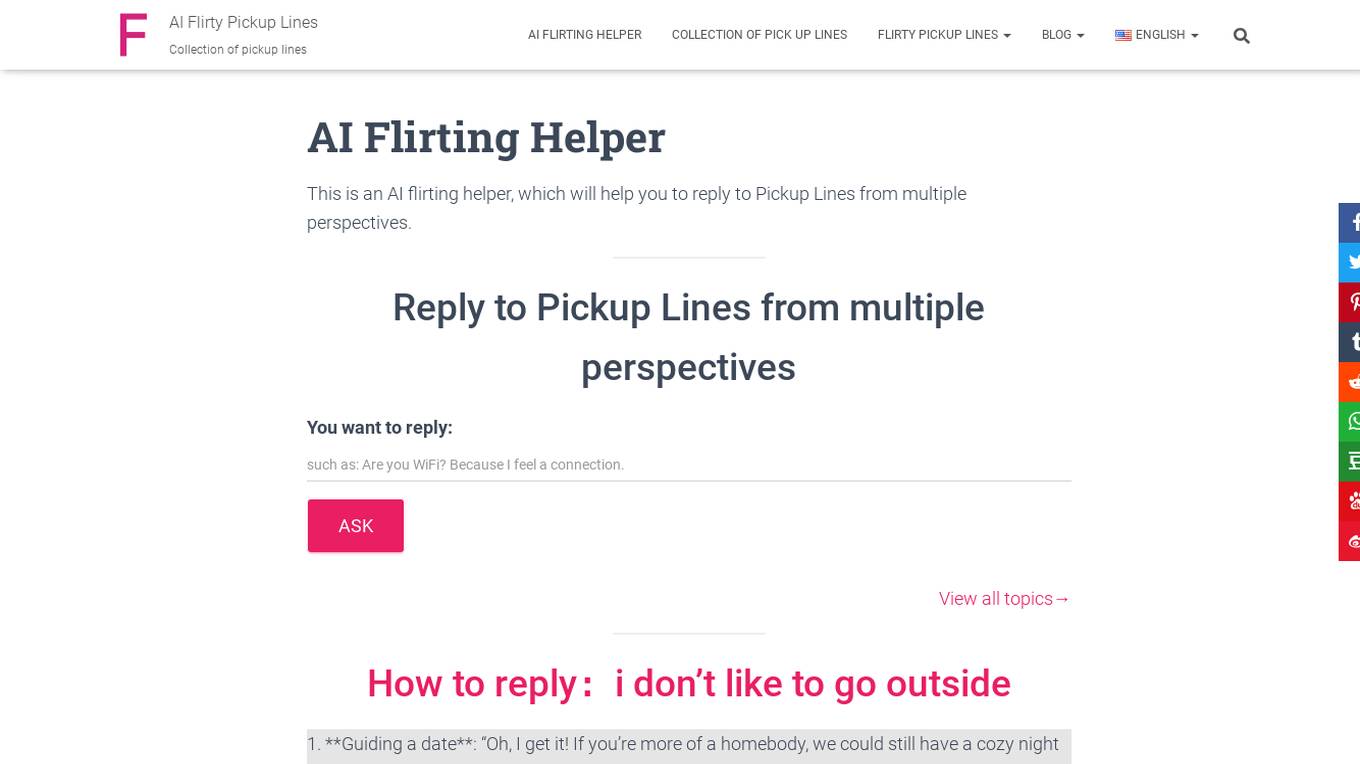Best AI tools for< Reject Politely >
1 - AI tool Sites

AI Flirting Helper
AI Flirting Helper is an AI application designed to assist users in responding to pickup lines from various perspectives. It offers guidance on how to reply, including suggestions for guiding a date, pretending not to understand, politely rejecting, and providing anti-PUA responses. The tool aims to help users navigate conversations with potential romantic interests by offering thoughtful and engaging replies.
site
: 0
0 - Open Source AI Tools
No tools available
3 - OpenAI Gpts

Power Automate Tutor
Learn at your own pace and empower your organization with self-service automation.
gpt
: 80+

